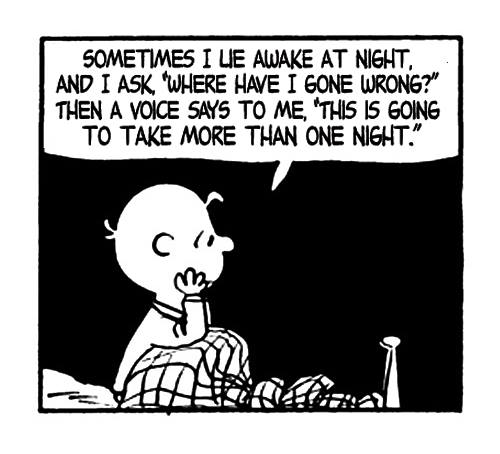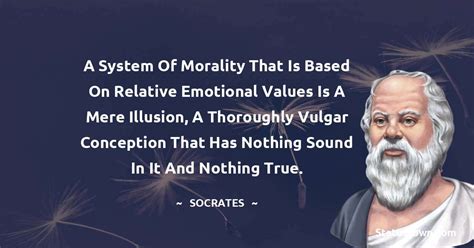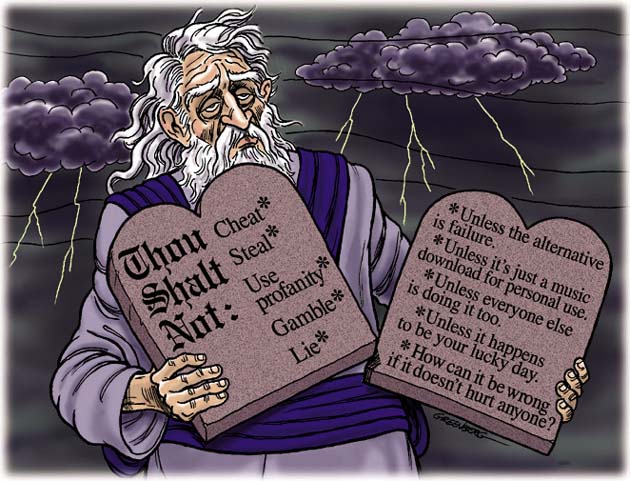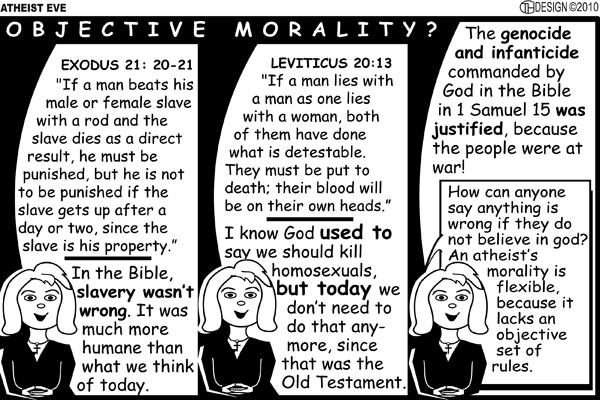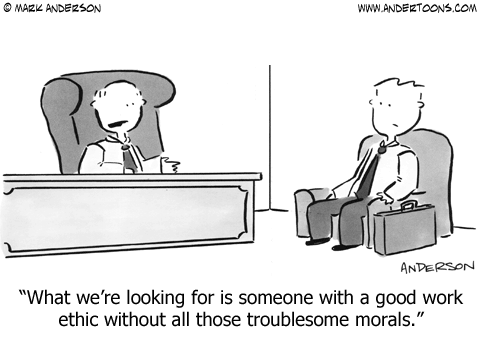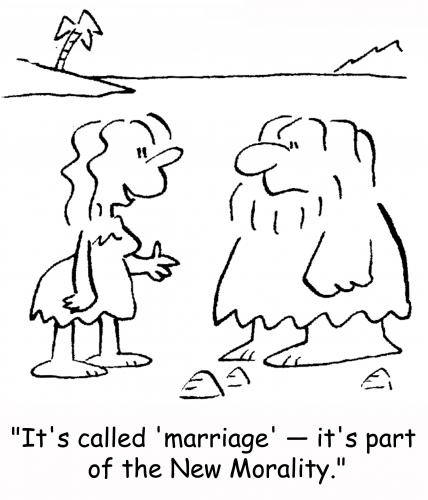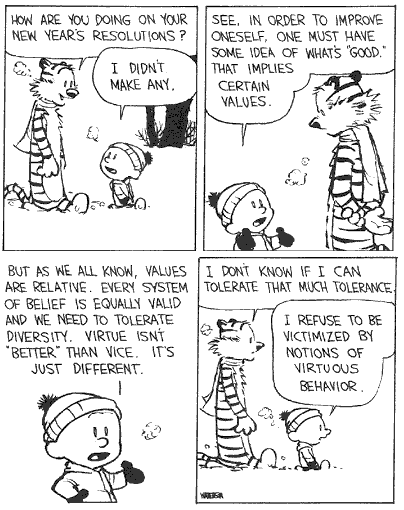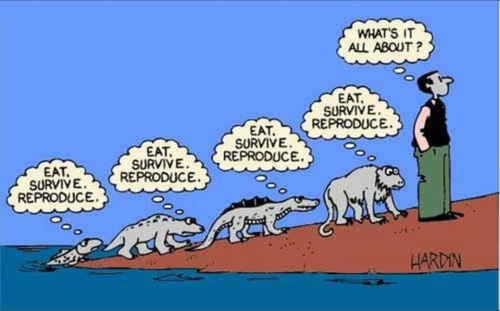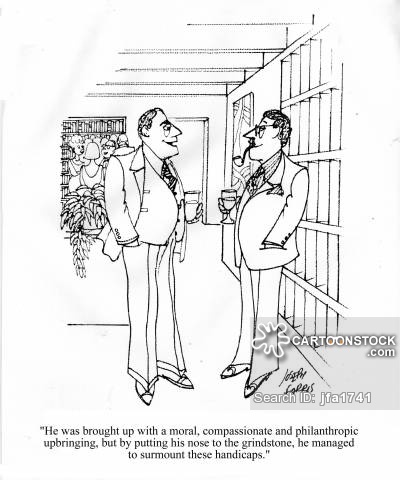|
home | what's new | other sites | contact | about |
|||
|
Word Gems exploring self-realization, sacred personhood, and full humanity
Morality
“It is often argued that religion makes men good. Santa Claus makes children good in precisely the same way." H.L. Mencken “Act to treat humanity never as a means to an end, but always as an end.” Kant “The acceptance of oneself is the essence of the whole moral problem." Jung "It is time to separate unchangeable morals from local manners.” Mary Wollstonecraft “[Let us not be] confusing monogamy with morality.” Shaw “People are good mostly by inertia, not by choice.” Brandon Sanderson "No law can be sacred to me but that of my own nature... How easily we capitulate to badges and names, to large societies and dead [religious] institutions.” Emerson "They were not good people. They were not kind. But they recycled their newspapers.” Lorrie Moore
Oscar Wilde, The Picture of Dorian Gray: “The books that the world calls immoral are books that show the world its own shame… Those who find ugly meanings in beautiful things are corrupt without being charming. This is a fault. Those who find beautiful meanings in beautiful things are the cultivated. For these there is hope. They are the elect to whom beautiful things mean only Beauty. There is no such thing as a moral or an immoral book. Books are well written, or badly written. That is all.” Voltaire: “It is forbidden to kill; therefore all murderers are punished unless they kill in large numbers and to the sound of trumpets.” Arthur Schopenhauer: “Compassion is the basis of morality.” Oscar Wilde, An Ideal Husband: “Morality is simply the attitude we adopt towards people we personally dislike.”
Robert A. Heinlein: “I am free, no matter what rules surround me. If I find them tolerable, I tolerate them; if I find them too obnoxious, I break them. I am free because I know that I alone am morally responsible for everything I do.”
Editor's note: In the "1-Minute Essay," see the apostle Paul's comment, "all things are lawful to me."
Henry David Thoreau: “Do not be too moral. You may cheat yourself out of much life so. Aim above morality. Be not simply good, be good for something.”
H.G. Wells, The Wife of Sir Isaac Harman: “Moral indignation is jealousy with a halo.” Carl Jung: “The pendulum of the mind oscillates between sense and nonsense, not between right and wrong.” C.S. Lewis: “Of all tyrannies, a tyranny sincerely exercised for the good of its victims may be the most oppressive. It would be better to live under robber barons than under omnipotent moral busybodies. The robber baron's cruelty may sometimes sleep, his cupidity may at some point be satiated; but those who torment us for our own good will torment us without end for they do so with the approval of their own conscience.” T.S. Eliot: “Most of the evil in this world is done by people with good intentions.” Arthur Schopenhauer, The Basis of Morality: “The assumption that animals are without rights and the illusion that our treatment of them has no moral significance is a positively outrageous example of Western crudity and barbarity. Universal compassion is the only guarantee of morality.” Theodore Roosevelt: “To educate a person in the mind but not in morals is to educate a menace to society.” Ernest Hemingway, Death in the Afternoon: “So far, about morals, I know only that what is moral is what you feel good after and what is immoral is what you feel bad after.” Immanuel Kant: “He who is cruel to animals becomes hard also in his dealings with men. We can judge the heart of a man by his treatment of animals.” Charlotte Brontë, Jane Eyre: “Laws and principles are not for the times when there is no temptation: they are for such moments as this, when body and soul rise in mutiny against their rigour ... If at my convenience I might break them, what would be their worth?” Augustine: “Right is right even if no one is doing it; wrong is wrong even if everyone is doing it.” Anne Frank, The Diary of a Young Girl: “A quiet conscience makes one strong.” Christopher Hitchens: “We keep on being told that religion, whatever its imperfections, at least instills morality. On every side, there is conclusive evidence that the contrary is the case and that faith causes people to be more mean, more selfish, and perhaps above all, more stupid.” Dalai Lama XIV: “This is my simple religion. There is no need for temples; no need for complicated philosophy. Our own brain, our own heart is our temple; the philosophy is kindness.” Terry Pratchett, Small Gods: “What have I always believed? That on the whole, and by and large, if a man lived properly, not according to what any priests said, but according to what seemed decent and honest inside, then it would, at the end, more or less, turn out all right.” Stephen King, The Stand: “People who try hard to do the right thing always seem [angry].” Carl Jung, Memories, Dreams, Reflections: “The acceptance of oneself is the essence of the whole moral problem and the epitome of a whole outlook on life. That I feed the hungry, that I forgive an insult, that I love my enemy in the name of Christ -- all these are undoubtedly great virtues. What I do unto the least of my brethren, that I do unto Christ. But what if I should discover that the least among them all, the poorest of all the beggars, the most impudent of all the offenders, the very enemy himself -- that these are within me, and that I myself stand in need of the alms of my own kindness -- that I myself am the enemy who must be loved -- what then? As a rule, the Christian's attitude is then reversed; there is no longer any question of love or long-suffering; we say to the brother within us ‘Raca,’ and condemn and rage against ourselves. We hide it from the world; we refuse to admit ever having met this least among the lowly in ourselves.” Albert Einstein: “He who joyfully marches to music rank and file has already earned my contempt. He has been given a large brain by mistake, since for him the spinal cord would surely suffice. This disgrace to civilization should be done away with at once. Heroism at command, senseless brutality, deplorable love-of-country stance and all the loathsome nonsense that goes by the name of patriotism, how violently I hate all this, how despicable and ignoble war is; I would rather be torn to shreds than be part of so base an action! It is my conviction that killing under the cloak of war is nothing but an act of murder.” Christopher Hitchens: “About once or twice every month I engage in public debates with those whose pressing need it is to woo and to win the approval of supernatural beings. Very often, when I give my view that there is no supernatural dimension … only or especially available to the faithful … I attract pitying looks and anxious questions. How, in that case, I am asked, do I find meaning and purpose in life? How does a mere and gross materialist … decide what, if anything, is worth caring about? Depending on my mood, I sometimes but not always refrain from pointing out what a breathtakingly insulting and patronizing question this is. (It is on a par with the equally subtle inquiry: Since you don't believe in our god, what stops you from stealing and lying and raping and killing to your heart's content?) Just as the answer to the latter question is: self-respect and the desire for the respect of others—while in the meantime it is precisely those who think they have divine permission who are truly capable of any atrocity—so the answer to the first question falls into two parts. A life that partakes even a little of friendship, love, irony, humor, parenthood, literature, and music, and the chance to take part in battles for the liberation of others cannot be called 'meaningless'…” Charlotte Brontë, Jane Eyre: “Conventionality is not morality.” Aristotle: “I have gained this by philosophy … I do without being ordered what some are constrained to do by their fear of the law.” Thomas Paine, Rights of Man: “Whatever is my right as a man is also the right of another; and it becomes my duty to guarantee as well as to possess.” Marcus Aurelius: “Do not act as if you were going to live ten thousand years. Death hangs over you. While you live, while it is in your power, be good.”
Bertrand Russell, Why I Am Not a Christian: “That is the idea -- that we should all be wicked if we did not hold to the Christian religion. It seems to me that the people who have held to it have been for the most part extremely wicked. You find this curious fact, that the more intense has been the religion of any period and the more profound has been the dogmatic belief, the greater has been the cruelty and the worse has been the state of affairs. In the so-called ages of faith, when men really did believe the Christian religion in all its completeness, there was the Inquisition, with all its tortures; there were millions of unfortunate women burned as witches; and there was every kind of cruelty practiced upon all sorts of people in the name of religion. You find as you look around the world that every single bit of progress in humane feeling, every improvement in the criminal law, every step toward the diminution of war, every step toward better treatment of the colored races, or every mitigation of slavery, every moral progress that there has been in the world, has been consistently opposed by the organized churches of the world. I say quite deliberately that the Christian religion, as organized in its churches, has been and still is the principal enemy of moral progress in the world. You may think that I am going too far when I say that that is still so. I do not think that I am. Take one fact. You will bear with me if I mention it. It is not a pleasant fact, but the churches compel one to mention facts that are not pleasant. Supposing that in this world that we live in today an inexperienced girl is married to a syphilitic man; in that case the Catholic Church says, 'This is an indissoluble sacrament. You must endure celibacy or stay together. And if you stay together, you must not use birth control to prevent the birth of syphilitic children.' Nobody whose natural sympathies have not been warped by dogma, or whose moral nature was not absolutely dead to all sense of suffering, could maintain that it is right and proper that that state of things should continue. That is only an example. There are a great many ways in which, at the present moment, the church, by its insistence upon what it chooses to call morality, inflicts upon all sorts of people undeserved and unnecessary suffering. And of course, as we know, it is in its major part an opponent still of progress and improvement in all the ways that diminish suffering in the world, because it has chosen to label as morality a certain narrow set of rules of conduct which have nothing to do with human happiness; and when you say that this or that ought to be done because it would make for human happiness, they think that has nothing to do with the matter at all. 'What has human happiness to do with morals? The object of morals is not to make people happy.” Immanuel Kant: “Act in such a way that you treat humanity, whether in your own person or in the person of any other, never merely as a means to an end, but always at the same time as an end.” Richard Dawkins, The God Delusion: “Do you really mean to tell me the only reason you try to be good is to gain God's approval and reward, or to avoid his disapproval and punishment? That's not morality, that's just sucking up, apple-polishing, looking over your shoulder at the great surveillance camera in the sky, or the still small wiretap inside your head, monitoring your every move, even your every base thought.” Warren Buffett: “Somebody once said that in looking for people to hire, you look for three qualities: integrity, intelligence, and energy. And if you don’t have the first, the other two will kill you. You think about it; it’s true. If you hire somebody without [integrity], you really want them to be dumb and lazy.” Sigmund Freud, The Future of an Illusion: “Immorality, no less than morality, has at all times found support in religion.” Aleksandr Solzhenitsyn, The Gulag Archipelago 1918-1956: “In keeping silent about evil, in burying it so deep within us that no sign of it appears on the surface, we are implanting it, and it will rise up a thousand fold in the future. When we neither punish nor reproach evildoers, we are not simply protecting their trivial old age, we are thereby ripping the foundations of justice from beneath new generations.” Brandon Sanderson, The Way of Kings: “Just because I do not accept the teachings of the devotaries does not mean I've discarded a belief in right and wrong." "But the Almighty determines what is right!" "Must someone, some unseen thing, declare what is right for it to be right? I believe that my own morality -- which answers only to my heart -- is more sure and true than the morality of those who do right only because they fear retribution.” Simone Weil: “Imaginary evil is romantic and varied; real evil is gloomy, monotonous, barren, boring. Imaginary good is boring; real good is always new, marvelous, intoxicating.” Malcolm Forbes: “You can easily judge the character of a man by how he treats those who can do nothing for him.” Robert G. Ingersoll, The Liberty of Man, Woman and Child: “This is my doctrine: Give every other human being every right you claim for yourself.” John Stuart Mill, On Liberty: “A person may cause evil to others not only by his actions but by his inaction, and in either case he is justly accountable to them for the injury.” Immanuel Kant, Critique of Practical Reason: “Two things fill the mind with ever-increasing wonder and awe, the more often and the more intensely the mind of thought is drawn to them: the starry heavens above me and the moral law within me.” Arthur C. Clarke: “One of the greatest tragedies in mankind's entire history may be that morality was hijacked by religion.” James Crumley: “Son, never trust a man who doesn’t drink because he’s probably a self-righteous sort, a man who thinks he knows right from wrong all the time. Some of them are good men, but in the name of goodness, they cause most of the suffering in the world. They’re the judges, the meddlers.” Azar Nafisi, Reading Lolita in Tehran: A Memoir in Books: “You don't read, Gatsby, I said, to learn whether adultery is good or bad but to learn about how complicated issues such as adultery and fidelity and marriage are. A great novel heightens your senses and sensitivity to the complexities of life and of individuals, and prevents you from the self-righteousness that sees morality in fixed formulas about good and evil.” Henry David Thoreau: “If you would convince a man that he does wrong, do right. But do not care to convince him. Men will believe what they see. Let them see.” Erich Fromm, Man for Himself: An Inquiry into the Psychology of Ethics: “There is perhaps no phenomenon which contains so much destructive feeling as 'moral indignation,' which permits envy or hate to be acted out under the guise of virtue.” Mary Wollstonecraft, A Vindication of the Rights of Woman: “It is vain to expect virtue from women till they are in some degree independent of men.” John Stuart Mill, Principles of Political Economy: “War is an ugly thing, but not the ugliest of things: the decayed and degraded state of moral and patriotic feeling which thinks that nothing is worth a war, is much worse. When a people are used as mere human instruments for firing cannon or thrusting bayonets, in the service and for the selfish purposes of a master, such war degrades a people. A war to protect other human beings against tyrannical injustice; a war to give victory to their own ideas of right and good, and which is their own war, carried on for an honest purpose by their free choice, — is often the means of their regeneration. A man who has nothing which he is willing to fight for, nothing which he cares more about than he does about his personal safety, is a miserable creature who has no chance of being free, unless made and kept so by the exertions of better men than himself. As long as justice and injustice have not terminated their ever-renewing fight for ascendancy in the affairs of mankind, human beings must be willing, when need is, to do battle for the one against the other.” Winston Churchill: "Madam, would you sleep with me for five million pounds?" Socialite: "My goodness, Mr. Churchill... Well, I suppose... we would have to discuss terms, of course. " Churchill: "Would you sleep with me for five pounds?" Socialite: "Mr. Churchill, what kind of woman do you think I am?!" Churchill: "Madam, we've already established that. Now we are haggling about the price.” Bertrand Russell, Sceptical Essays: “The infliction of cruelty with a good conscience is a delight to moralists. That is why they invented Hell.” Aristotle: “All persons ought to endeavor to follow what is right, and not what is established.” Jeremy Bentham: “Create all the happiness you are able to create; remove all the misery you are able to remove. Every day will allow you -- will invite you to add something to the pleasure of others -- or to diminish something of their pains.” Mark Twain, The Adventures of Huckleberry Finn: “Right is right, and wrong is wrong, and a body ain’t got no business doing wrong when he ain’t ignorant and knows better.” Mark Twain, The Diary of Adam and Eve: “I wish I could make him understand that a loving good heart is riches enough, and that without it intellect is poverty.” Ashly Lorenzana: “Never try to do anything that is outside of who you are. A forced smile is a sign of what feels wrong in your heart, so recognize it when it happens. Living a lie will reduce you to one.”
Sam Harris, Letter to a Christian Nation: “If you think that it would be impossible to improve upon the Ten Commandments as a statement of morality, you really owe it to yourself to read some other scriptures. Once again, we need look no further than the Jains. Mahavira, the Jain patriarch, surpassed the morality of the Bible with a single sentence: 'Do not injure, abuse, oppress, enslave, insult, torment, torture, or kill any creature or living being.' Imagine how different our world might be if the Bible contained this as its central precept. Christians have abused, oppressed, enslaved, insulted, tormented, tortured, and killed people in the name of God for centuries, on the basis of a theologically defensible reading of the Bible.” Ayn Rand, Atlas Shrugged: “Learn to distinguish the difference between errors of knowledge and breaches of morality. An error of knowledge is not a moral flaw, provided you are willing to correct it; only a mystic would judge human beings by the standard of an impossible, automatic omniscience. But a breach of morality is the conscious choice of an action you know to be evil, or a willful evasion of knowledge, a suspension of sight and of thought. That which you do not know, is not a moral charge against you; but that which you refuse to know, is an account of infamy growing in your soul. Make every allowance for errors of knowledge; do not forgive or accept any break of morality.” Hunter S. Thompson, Kingdom of Fear: “Morality is temporary, wisdom is permanent.” Thomas A. Edison, Columbian Magazine interview: “What I have denied and what my reason compels me to deny, is the existence of a Being throned above us as a god, directing our mundane affairs in detail, regarding us as individuals, punishing us, rewarding us as human judges might. When the churches learn to take this rational view of things, when they become true schools of ethics and stop teaching fables, they will be more effective than they are to-day... If they would turn all that ability to teaching this one thing – the fact that honesty is best, that selfishness and lies of any sort must surely fail to produce happiness – they would accomplish actual things. Religious faiths and creeds have greatly hampered our development. They have absorbed and wasted some fine intellects. That creeds are getting to be less and less important to the average mind with every passing year is a good sign, I think, although I do not wish to talk about what is commonly called theology. The criticisms which have been hurled at me have not worried me. A man cannot control his beliefs. If he is honest in his frank expression of them, that is all that can in justice be required of him. Professor Thomson and a thousand others do not in the least agree with me. His criticism of me, as I read it, charged that because I doubted the soul’s immortality, or ‘personality,’ as he called it, my mind must be abnormal, ‘pathological,’ in other, words, diseased... I try to say exactly what I honestly believe to be the truth, and more than that no man can do. I honestly believe that creedists have built up a mighty structure of inaccuracy, based, curiously, on those fundamental truths which I, with every honest man, must not alone admit but earnestly acclaim. I have been working on the same lines for many years. I have tried to go as far as possible toward the bottom of each subject I have studied. I have not reached my conclusions through study of traditions; I have reached them through the study of hard fact. I cannot see that unproved theories or sentiment should be permitted to have influence in the building of conviction upon matters so important. Science proves its theories or it rejects them. I have never seen the slightest scientific proof of the religious theories of heaven and hell, of future life for individuals, or of a personal God. I earnestly believe that I am right; I cannot help believing as I do... I cannot accept as final any theory which is not provable. The theories of the theologians cannot be proved. Proof, proof! That is what I always have been after; that is what my mind requires before it can accept a theory as fact. Some things are provable, some things disprovable, some things are doubtful. All the problems which perplex us, now, will, soon or late, be solved, and solved beyond a question through scientific investigation. The thing which most impresses me about theology is that it does not seem to be investigating. It seems to be asserting, merely, without actual study. ...Moral teaching is the thing we need most in this world, and many of these men could be great moral teachers if they would but give their whole time to it, and to scientific search for the rock-bottom truth, instead of wasting it upon expounding theories of theology which are not in the first place firmly based. What we need is search for fundamentals, not reiteration of traditions born in days when men knew even less than we do now.” H.L. Mencken, Minority Report: “It is often argued that religion is valuable because it makes men good, but even if this were true it would not be a proof that religion is true. That would be an extension of pragmatism beyond endurance. Santa Claus makes children good in precisely the same way, and yet no one would argue seriously that the fact proves his existence. The defense of religion is full of such logical imbecilities. The theologians, taking one with another, are adept logicians, but every now and then they have to resort to sophistries so obvious that their whole case takes on an air of the ridiculous. Even the most logical religion starts out with patently false assumptions. It is often argued in support of this or that one that men are so devoted to it that they are willing to die for it. That, of course, is as silly as the Santa Claus proof. Other men are just as devoted to manifestly false religions, and just as willing to die for them. Every theologian spends a large part of his time and energy trying to prove that religions for which multitudes of honest men have fought and died are false, wicked, and against God.” Immanuel Kant: “The death of dogma is the birth of morality.” Nathaniel Hawthorne, The Scarlet Letter: “She had wandered, without rule or guidance, into a moral wilderness... Her intellect and heart had their home, as it were, in desert places, where she roamed as freely as the wild Indian in his woods... The scarlet letter was her passport into regions where other women dared not tread. Shame, Despair, Solitude! These had been her teachers—stern and wild ones—and they had made her strong, but taught her much amiss.” Friedrich Nietzsche: “A moral system valid for all is basically immoral.” Sam Harris: “We read the Golden Rule and judge it [and the Bible] to be a brilliant distillation of many of our ethical impulses. And then we come across another of God’s teachings on morality: if a man discovers on his wedding night that his bride is not a virgin, he must stone her to death on her father’s doorstep (Deuteronomy 22:13-21).” Confucius: “The superior man understands what is right; the inferior man understands what will sell.” Christopher Hitchens: “Let's say that the consensus is that our species, being the higher primates, Homo Sapiens, has been on the planet for at least 100,000 years... In order to be a Christian, you have to believe that for 98,000 years, our species suffered and died, most of its children dying in childbirth, most other people having a life expectancy of about 25 years, dying of their teeth. Famine, struggle, bitterness, war, suffering, misery, all of that for 98,000 years. Heaven watches this with complete indifference. And then 2000 years ago, thinks 'That's enough of that. It's time to intervene,' and the best way to do this would be by condemning someone to a human sacrifice somewhere in the less literate parts of the Middle East. Don't lets appeal to the Chinese, for example, where people can read and study evidence and have a civilization. Let's go to the desert and have another revelation there. This is nonsense. It can't be believed by a thinking person. Why am I glad this is the case? To get to the point of the wrongness of Christianity, because I think the teachings of Christianity are immoral. The central one is the most immoral of all, and that is the one of vicarious redemption. You can throw your sins onto somebody else, vulgarly known as scapegoating. In fact, originating as scapegoating in the same area, the same desert. I can pay your debt if I love you. I can serve your term in prison if I love you very much. I can volunteer to do that. I can't take your sins away, because I can't abolish your responsibility, and I shouldn't offer to do so. Your responsibility has to stay with you. There's no vicarious redemption. There very probably, in fact, is no redemption at all. It's just a part of wish-thinking, and I don't think wish-thinking is good for people either. It even manages to pollute the central question, the word I just employed, the most important word of all: the word love, by making love compulsory, by saying you MUST love. You must love your neighbour as yourself, something you can't actually do. You'll always fall short, so you can always be found guilty. By saying you must love someone who you also must fear. That's to say a supreme being, an eternal father, someone of whom you must be afraid, but you must love him, too. If you fail in this duty, you're again a wretched sinner. This is not mentally or morally or intellectually healthy. And that brings me to the final objection - I'll condense it … this is a totalitarian system. If there was a God who could do these things and demand these things of us, and he was eternal and unchanging, we'd be living under a dictatorship from which there is no appeal, and one that can never change and one that knows our thoughts and can convict us of thought crime, and condemn us to eternal punishment for actions that we are condemned in advance to be taking. All this in the round, and I could say more, it's an excellent thing that we have absolutely no reason to believe any of it to be true.” Albert Einstein: “A man's ethical behaviour should be based effectually on sympathy, education, and social ties and needs; no religious basis is necessary. Man would indeed be in a poor way if he had to be restrained by fear of punishment and hope of reward after death.”
Ayn Rand, Atlas Shrugged: “What is morality, she asked. Judgment to distinguish right and wrong, vision to see the truth, and courage to act upon it, dedication to that which is good, integrity to stand by the good at any price.” E.A. Bucchianeri, Brushstrokes of a Gadfly: “Errors do not cease to be errors simply because they’re ratified into law.” Sam Harris: “In the year 2006, a person can have sufficient intellectual and material resources to build a nuclear bomb and still believe that he will get seventy-two virgins in Paradise.” John Stuart Mill, On Liberty: “It still remains unrecognised, that to bring a child into existence without a fair prospect of being able, not only to provide food for its body, but instruction and training for its mind, is a moral crime, both against the unfortunate offspring and against society.” C.S. Lewis: “If no set of moral ideas were truer or better than any other, there would be no sense in preferring civilised morality to savage morality.” Jeremy Bentham, The Principles of Morals and Legislation: “But a full-grown horse or dog is beyond comparison a more rational, as well as a more conversable animal, than an infant of a day or a week or even a month old. But suppose they were otherwise, what would it avail? The question is not, Can they reason? nor Can they talk? but, Can they suffer?” Charles Darwin, The Descent of Man: “The following proposition seems to me in a high degree probable—namely, that any animal whatever, endowed with well-marked social instincts, the parental and filial affections being here included, would inevitably acquire a moral sense or conscience, as soon as its intellectual powers had become as well, or nearly as well developed, as in man. For, firstly, the social instincts lead an animal to take pleasure in the society of its fellows, to feel a certain amount of sympathy with them, and to perform various services for them.” Charlotte Brontë, Shirley: “On leaving the instrument, she went to the fire, and sat down on a seat -- semi-stool, semi-cushion: the ladies were round her -- none of them spoke. The Misses Sympson and the Misses Nunnely looked upon her, as quiet poultry might look on an egret, an ibis, or any other strange fowl. What made her sing so? They never sang so. Was it proper to sing with such expression, with such originality -- so unlike a school girl? Decidedly not: it was strange, it was unusual. What was strange must be wrong; what was unusual must be improper. Shirley was judged.” Rebecca Manley Pippert: “If you say there is no such thing as morality in absolute terms, then child abuse is not evil, it just may not happen to be your thing.” David Graeber, Debt: The First 5,000 Years: “If history shows anything, it is that there's no better way to justify relations founded on violence, to make such relations seem moral, than by reframing them in the language of debt [sin] —above all, because it immediately makes it seem that it's the victim who's doing something wrong.” Dorothy L. Sayers, Gaudy Night: “Some people's blameless lives are to blame for a good deal.” Carl Sagan, Contact: “Your religion assumes that people are children and need a boogeyman so they'll behave. You want people to believe in God so they'll obey the law. That's the only means that occurs to you: a strict secular police force, and the threat of punishment by an all-seeing God for whatever the police overlook. You sell human beings short.” Patrick Henry: “The eternal difference between right and wrong does not fluctuate, it is immutable.” John Stuart Mill, On Liberty: “Christian morality (so called) has all the characters of a reaction; it is, in great part, a protest against Paganism. Its ideal is negative rather than positive; passive rather than action; innocence rather than Nobleness; Abstinence from Evil, rather than energetic Pursuit of Good: in its precepts (as has been well said) thou shalt not predominates unduly over thou shalt.” Mary Wollstonecraft, A Vindication of the Rights of Woman: “It is time to effect a revolution in female manners - time to restore to them their lost dignity - and make them, as a part of the human species, labour by reforming themselves to reform the world. It is time to separate unchangeable morals from local manners.” Dorothy L. Sayers, The Letters: “When I see men callously and cheerfully denying women the full use of their bodies, while insisting with sobs and howls on the satisfaction of their own, I simply can't find it heroic, or kind, or anything but pretty rotten and feeble.” George Bernard Shaw: “Confusing monogamy with morality has done more to destroy the conscience of the human race than any other error.” Alexis de Tocqueville, Democracy in America: “Society is endangered not by the great profligacy of a few, but by the laxity of morals amongst all.” Alexander Pushkin, Tales of Belkin: “Moral maxims are surprisingly useful on occasions when we can invent little else to justify our actions.” Aristotle: “A tyrant must put on the appearance of uncommon devotion to religion. Subjects are less apprehensive of illegal treatment from a ruler whom they consider god-fearing and pious. On the other hand, they do less easily move against him, believing that he has the gods on his side.” Susan Sontag, Regarding the Pain of Others: “One person's 'barbarian' is another person's 'just doing what everybody else is doing.” C.S. Lewis: “My argument against God was that the universe seemed so cruel and unjust. But how had I got this idea of just and unjust? A man does not call a line crooked unless he has some idea of a straight line. What was I comparing this universe with when I called it unjust? If the whole show was bad and senseless from A to Z, so to speak, why did I, who was supposed to be part of the show, find myself in such a violent reaction against it?... If the whole universe has no meaning, we should never have found out that it has no meaning: just as, if there were no light in the universe and therefore no creatures with eyes, we should never have known it was dark. Dark would be without meaning.”
Timothy Snyder, Bloodlands: Europe Between Hitler and Stalin: “It is tempting to say that a Nazi murderer is beyond the pale of understanding. ...Yet to deny a human being his human character is to render ethics impossible. To yield to this temptation, to find other people inhuman, is to take a step toward, not away from, the Nazi position.” Sarah Vowell, The Wordy Shipmates: “The only thing more dangerous than an idea is a belief. And by dangerous I don't mean thought-provoking. I mean: might get people killed.” Thomas Paine, The Age of Reason: “The most detestable wickedness, the most horrid cruelties, and the greatest miseries, that have afflicted the human race have had their origin in this thing called revelation, or revealed religion. It has been the most dishonourable belief against the character of the divinity, the most destructive to morality, and the peace and happiness of man, that ever was propagated since man began to exist. It is better, far better, that we admitted, if it were possible, a thousand devils to roam at large, and to preach publicly the doctrine of devils, if there were any such, than that we permitted one such impostor and monster as Moses, Joshua, Samuel, and the Bible prophets, to come with the pretended word of God in his mouth, and have credit among us. Whence arose all the horrid assassinations of whole nations of men, women, and infants, with which the Bible is filled; and the bloody persecutions, and tortures unto death and religious wars, that since that time have laid Europe in blood and ashes; whence arose they, but from this impious thing called revealed religion, and this monstrous belief that God has spoken to man? The lies of the Bible have been the cause of the one, and the lies of the Testament of the other.” Brandon Sanderson, The Alloy of Law: “People today...it seems they are good, or sometimes evil, mostly by inertia, not by choice.” Emma Goldman: “To the moralist, prostitution does not consist so much in the fact that the woman sells her body, but rather that she sells it out of wedlock.”
Editor's note: The is the argument of Abbess Heloise!
Dorothy L. Sayers, Gaudy Night: “I imagine you come across a number of people who are disconcerted by the difference between what you do feel and what they fancy you ought to feel.” Bernhard Schlink, The Reader: “What is law? Is it what is on the books, or what is actually enacted and obeyed in a society? Or is law what must be enacted and obeyed, whether or not it is on the books, if things are to go right?” Aravind Adiga, The White Tiger: “You ask, Are you a man or a demon? Neither, I say. I have woken up, and the rest of you are sleeping, and that is the only difference between us.” William Makepeace Thackeray, Vanity Fair: “The moral world has no particular objection to vice, but an insuperable repugnance to hearing vice called by its proper name.” David Eddings, Queen of Sorcery: “As long as I know that my motives are good, I'm seldom very concerned with the opinions of others.” Thomas Szasz: “Punishment is now unfashionable... because it creates moral distinctions among men, which, to the democratic mind, are odious. We prefer a meaningless collective guilt to a meaningful individual responsibility.” Ursula K. Le Guin, A Wizard of Earthsea: “War as a moral metaphor is limited, limiting, and dangerous. By reducing the choices of action to “a war against” whatever-it-is, you divide the world into Me or Us (good) and Them or It (bad) and reduce the ethical complexity and moral richness of our life to Yes/No, On/Off. This is puerile, misleading, and degrading. In stories, it evades any solution but violence and offers the reader mere infantile reassurance. All too often the heroes of such fantasies behave exactly as the villains do, acting with mindless violence, but the hero is on the “right” side and therefore will win. Right makes might.” Spencer Reid: “Evil can't be scientifically defined: it's an illusory moral concept that doesn't exist in nature. Its origins and connotations have been inextricably been linked to religion and mythology.” Aaron Swartz: “Before I went to college I read two books. I read a book “Moral Mazes” by Robert Jackall which is a study of how corporations work, and it’s actually a fascinating book, this sociologist, he just picks a corporation at random and just goes and studies the middle managers, not the people who do any of the grunt work and not the big decision makers, just the people whose job is to make sure that things day to day get done, and he shows how even though they’re all perfectly reasonable people, perfectly nice people you’d be happy to meet any of them, all the things that they were accomplishing were just incredibly evil. So you have these people in this average corporation, they were making decisions to blow out their worker’s eardrums in the factory, to poison the lakes and the lagoons nearby, to make these products that are filled with toxic chemicals that poisoned their customers, not because any of them were bad people and wanted to kill their workers and their neighbourhood and their customers, but just because that was the logic of the situation they were in. Another book I read was a book “Understanding Power” by Noam Chomsky which kind of took the same sort of analysis but applied it to wider society which you know we’re in a situation where it may be filled with perfectly good people but they’re in these structures that cause them to continually do evil, to invade countries, to bomb people, to take money from poor people and give it to rich people, to do all these things that are wrong. These books really opened my eyes about just how bad the society we were living in really is.” Alan Moore, Watchmen: “The world of Doc Savage and The Shadow was one of absolute values, where what was good was never in the slightest doubt and where what was evil inevitably suffered some fitting punishment.” Václav Havel: “The worst thing is that we live in a contaminated moral environment. We feel morally ill because we became used to saying something different from what we thought. Concepts such as love, friendship, compassion, humility or forgiveness lost their depth and dimension.”
Ursula K. Le Guin, The Other Wind: “Animals do neither good nor evil. They do as they must do. We may call what they do harmful or useful, but good and evil belong to us... The dragons are dangerous, yes. They can do harm, yes. But they're not evil... The animals need only be and do. We're yoked, and they're free.” Aleksandr Solzhenitsyn: “If humanism were right in declaring that man is born to be happy, he would not be born to die. Since his body is doomed to die, his task on earth evidently must be of a more spiritual nature. It cannot the unrestrained enjoyment of everyday life... It has to be the fulfillment of a permanent, earnest duty so that one's life journey may become an experience of moral growth, so that one may leave life a better human being than one started it.”
Editor's note: Solzhenitsyn makes an incredibly insightful statement. How often we have heard the empty platitude that "God wants me to be happy!" as if this were the reason we came to the Earth. If God wanted us to be happy, he would have given us perfect lives and wouldn't have subjected us to the fear of death which overtly and subliminally terrorizes all people, all the time. Now, this world, is not our time to be happy; that's for the next. Our present task is to "wake up," or as Solzhenitsyn puts it, enter "an experience of moral growth."
Charles Bukowski, Women: “I felt no sadness while driving her to L.A. International. The sex had been fine; there had been laughter. I could hardly remember a more civilized time, neither of us making any demands... Strangers when you meet, strangers when you part—a gymnasium of bodies namelessly masturbating each other. People with no morals often considered themselves more free, but mostly they lacked the ability to feel or to love. So they became swingers. The dead fucking the dead... Morals were restrictive, but they were grounded on human experience down through the centuries. Some morals tended to keep people slaves in factories, in churches, and true to the State. Other morals simply made good sense. It was like a garden filled with poisoned fruit and good fruit. You had to know which to pick and eat, which to leave alone.” Hannah Arendt, Eichmann in Jerusalem: A Report on the Banality of Evil: “Evil in the Third Reich had lost the quality by which most people recognize it—the quality of temptation.” Friedrich Nietzsche, The Anti-Christ: “People have always wanted to 'improve' human beings; for the most part, this has been called morality.” Friedrich Nietzsche: “[The world] has known many moral systems, each of which advances claims of universality; all moral systems are therefore particular, serving a specific purpose for their propagators or creators, and enforcing a certain regime that disciplines human beings for social life by narrowing our perspectives and limiting our horizons.” Alice Bag: “My sexuality is not an inferior trait that needs to be chaperoned by emotionalism or morality.” D.A. Carson, The Gagging of God: Christianity Confronts Pluralism: “In the moral realm, there is very little consensus left in Western countries over the proper basis of moral behavior. And because of the power of the media, for millions of men and women the only venue where moral questions are discussed and weighed is the talk show, where more often than not the primary aim is to entertain, even shock, not to think. When Geraldo and Oprah become the arbiters of public morality, when the opinion of the latest media personality is sought on everything from abortion to transvestites, when banality is mistaken for profundity because [it's] uttered by a movie star or a basketball player, it is not surprising that there is less thought than hype. Oprah shapes more of the nation's grasp of right and wrong than most of the pulpits in the land. Personal and social ethics have been removed from the realms of truth and structures of thoughts; they have not only been relativized, but they have been democratized and trivialized.” Jeff Cooper, Art of the Rifle: “The rifle itself has no moral stature, since it has no will of its own. Naturally, it may be used by evil men for evil purposes, but there are more good men than evil, and while the [evil men] cannot be persuaded to the path of righteousness by propaganda, they can certainly be corrected by good men with rifles.” Margherita Hack: “[We] atheist people … believe we have to act properly and honestly for a moral principle and not because we expect an award in Paradise.” Rollo May: “Indeed, compulsive and rigid moralism arises in given persons precisely as the result of a lack of sense of being. Rigid moralism is a compensatory mechanism by which the individual persuades himself to take over the external sanctions because he has no fundamental assurance that his own choices have any sanction of their own.” Ralph Waldo Emerson, Self-Reliance and Other Essays: “On my saying, ‘What have I to do with the sacredness of traditions, if I live wholly from within?’ my friend suggested,--‘But these impulses may be from below, not from above.’ I replied, ‘They do not seem to me to be such; but if I am the Devil's child, I will live then from the Devil.’ No law can be sacred to me but that of my nature. Good and bad are but names very readily transferable to that or this; the only right is what is after my constitution, the only wrong what is against it. A man is to carry himself in the presence of all opposition as if everything were titular and ephemeral but he. I am ashamed to think how easily we capitulate to badges and names, to large societies and dead institutions.”
Lorrie Moore, Birds of America: “This lunge at moral fastidiousness was something she'd noticed a lot in people around here. They were not good people. They were not kind. But they recycled their newspapers!” Immanuel Kant: “The people naturally adhere most to doctrines which demand the least self-exertion and the least use of their own reason, and which can best accommodate their duties to their inclinations.” Allan Bloom, The Closing of the American Mind: “Commitment is a word invented in our abstract modernity to signify the absence of any real motives in the soul for moral dedication.” Taylor Caldwell, Dear and Glorious Physician: “Corrupt citizens breed corrupt rulers, and it is the mob who finally decides when virtue shall die.” Suzy Kassem, Rise Up and Salute the Sun: “We awaken by asking the right questions. We awaken when we see knowledge being spread that goes against our own personal experiences. We awaken when we see popular opinion being wrong but accepted as being right, and what is right being pushed as being wrong. We awaken by seeking answers in corners that are not popular. And we awaken by turning on the light inside when everything outside feels dark.” Charles Darwin: “Besides love and sympathy, animals exhibit other qualities connected with the social instincts which in us would be called moral.” R.A. Salvatore, The Ghost King: “Do we behave out of fear of punishment, or out of the demands of our heart? … To act in a manner designed to catapult you into heaven would seem transparent to a god, any god, for if one’s heart is not in alignment with the creator of that heaven, then... what’s the point?” George Eliot: “My own experience and development deepen every day my conviction that our moral progress may be measured by the degree in which we sympathize with individual suffering and individual joy.” Narcissismus Decimus Maximus: “Just because something is normal, does not make it morally justified. Case in point: Anti-semitism in Nazi Germany.” Robert M. Price: “Real morality is not the product of fearing a spanking. But what does fundamentalist hell-belief encourage? It retards any developing moral judgment by freezing moral maturity right at the most primitive, most childish, stage.” Kakuzo Okakura, The Book of Tea: “Our standards of morality are begotten of the past needs of society, but is society to remain always the same?” Lindsey Brown: “If religion is the cornerstone of morality, how come I so often find myself explaining why I don’t hate god to someone who’s expressed hatred for atheists, scientists, feminists, gays, intellectuals, and all other forms of infidels?” Aldous Huxley, Ends and Means: “I had motives for not wanting the world to have a meaning; and consequently assumed that it had none, and was able without any difficulty to find satisfying reasons for this assumption. The philosopher who finds no meaning in the world is not concerned exclusively with a problem in pure metaphysics. He is also concerned to prove that there is no valid reason why he personally should not do as he wants to do. For myself, as no doubt for most of my friends, the philosophy of meaninglessness was essentially an instrument of liberation from a certain system of morality. We objected to the morality because it interfered with our sexual freedom. The supporters of this system claimed that it embodied the meaning - the Christian meaning, they insisted - of the world. There was one admirably simple method of confuting these people and justifying ourselves in our erotic revolt: we would deny that the world had any meaning whatever.” Al-Ma-arri: “Make not, when you work a deed of shame, The scoundrel's plea, 'My forbears did the same.” Suzy Kassem, Rise Up and Salute the Sun: “Let's face it. We live in a command-based system, where we have been programmed since our earliest school years to become followers, not individuals. We have been conditioned to embrace teams, the herd, the masses, popular opinion -- and to reject what is different, eccentric or stands alone. We are so programmed that all it takes for any business or authority to condition our minds to follow or buy something -- is to simply repeat a statement more than three or four times until we repeat it ourselves and follow it as truth or the best trendiest thing. This is why Coke runs many commercials. Even though we all already know what Coke is and what it tastes like, we as humans have proven to be forgetful, so Coke must run several ads every quarter to remind us to drink it. And if you notice, ad campaigns are usually designed to run within a set duration and in a sequence where ads are guaranteed to be seen consecutively. This is called "programming" -- the frequent repetition of words to condition us how to think, what to like, and who to follow.” Allen W. Wood, Kant: “What is most remarkable about the philosophy of Kant … [is that] he seems to have gone to the root of the matter … In his brief, five-page essay on the question "What is Enlightenment?" for example, he locates the essence of enlightenment not in learning or the cultivation of our intellectual powers but in the courage and resolve to think for oneself, to emancipate oneself from tradition, prejudice, and every form of authority that offers us the comfort and security of letting someone else do our thinking for us.” Abhijit Naskar, Morality Absolute: “The worst thing about social conditioning is that it makes an individual … genuinely believe that he or she is being moral, while in reality, the person may be committing the worst kind of immoral atrocities ever.”
|
|||
|
|


